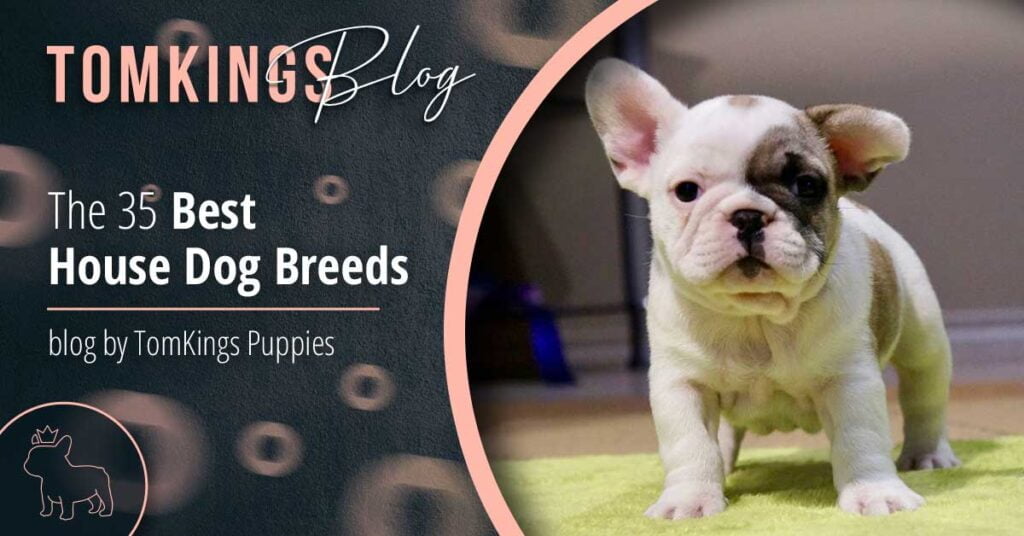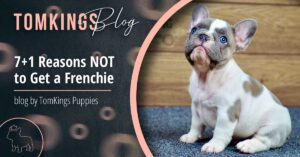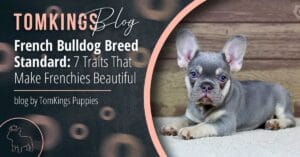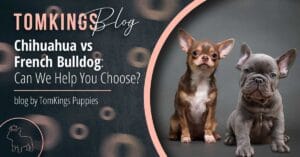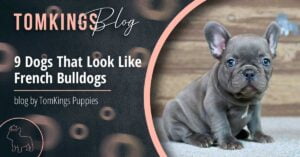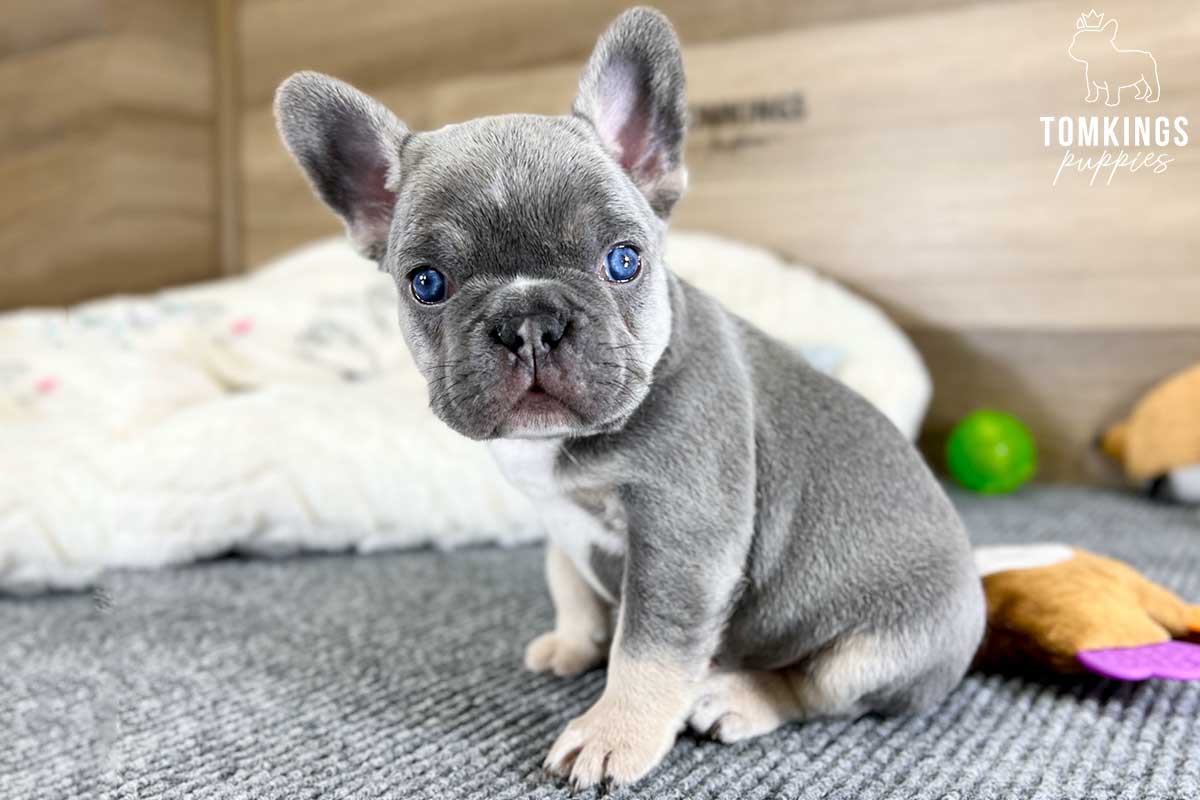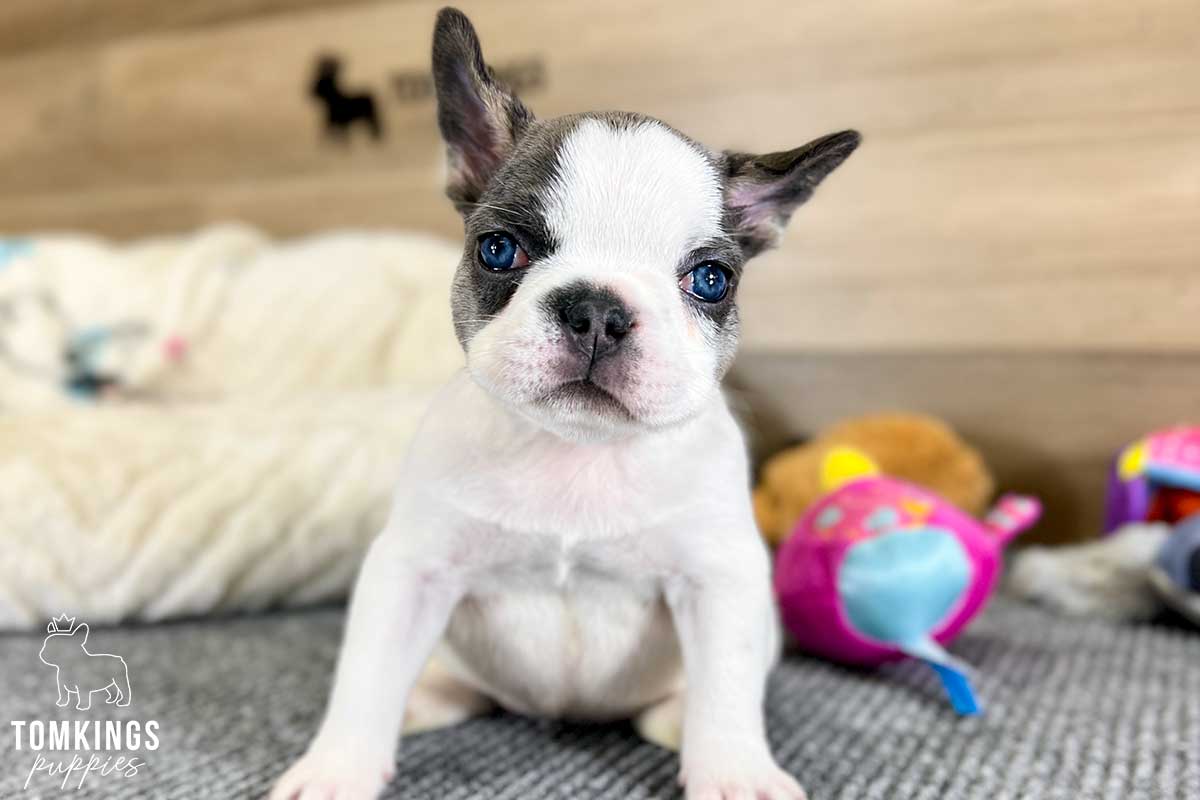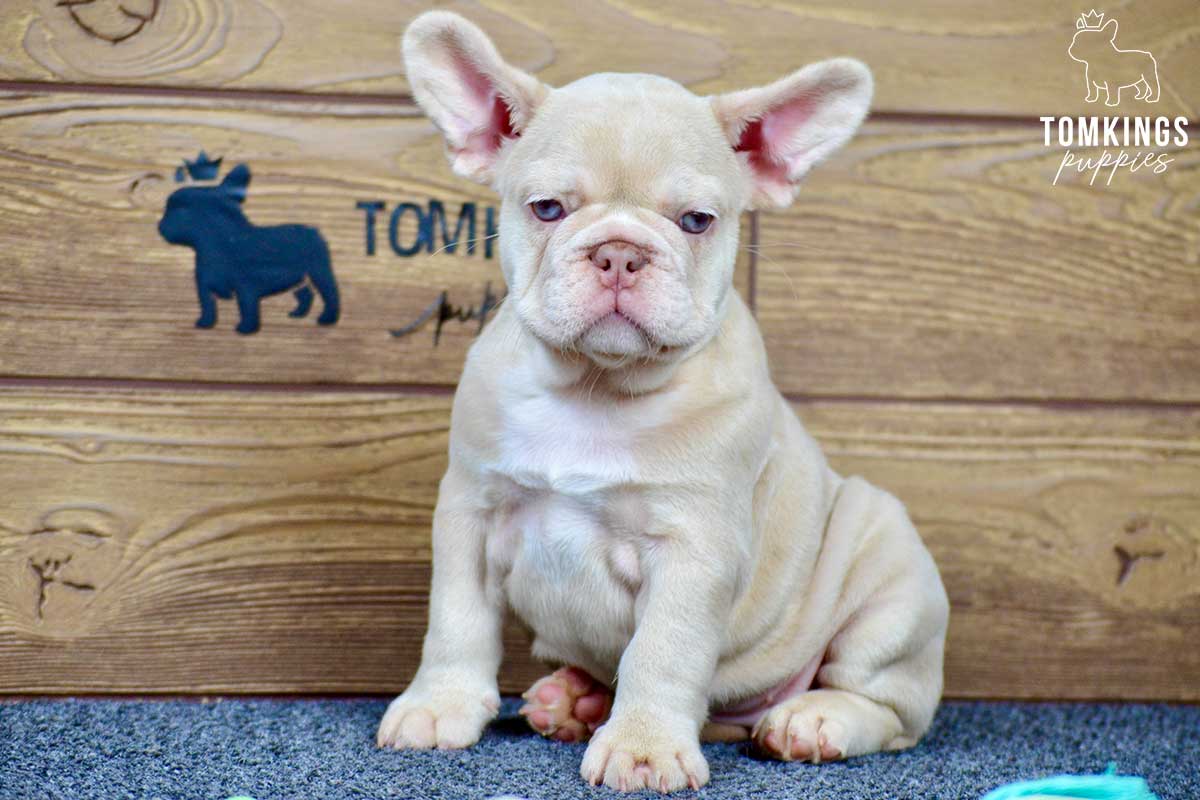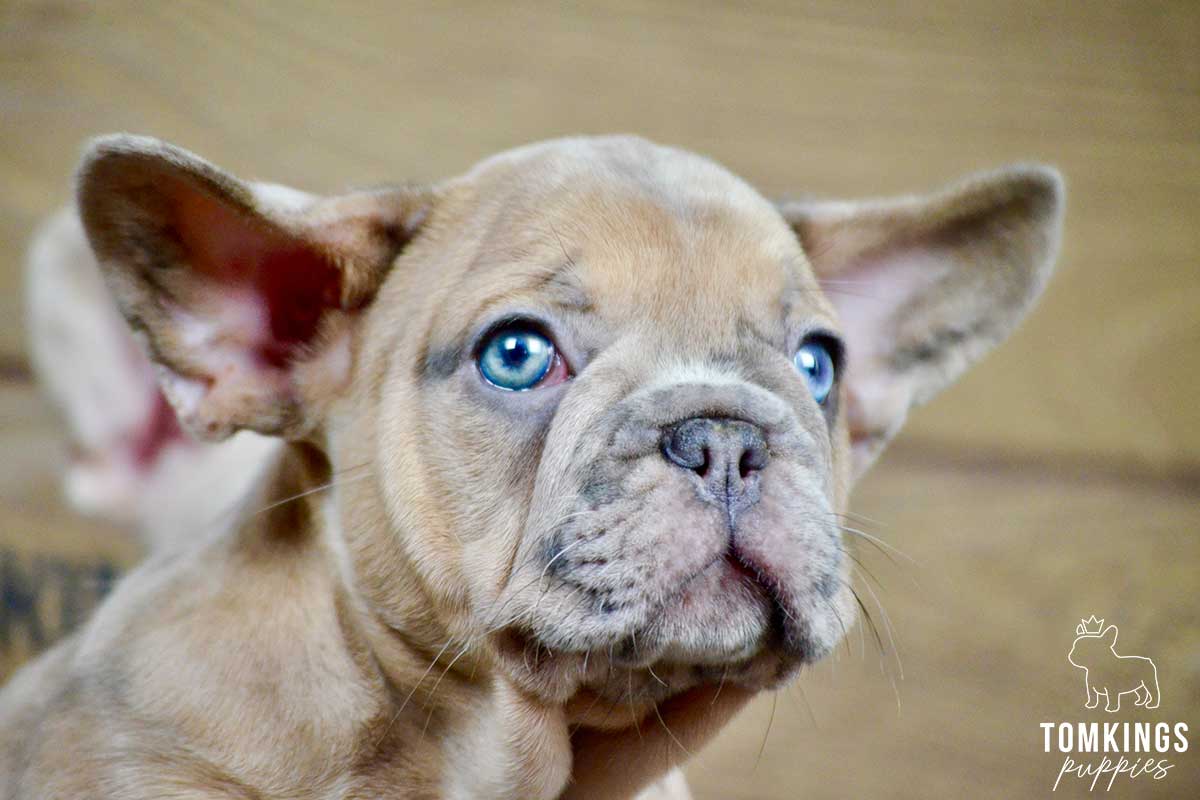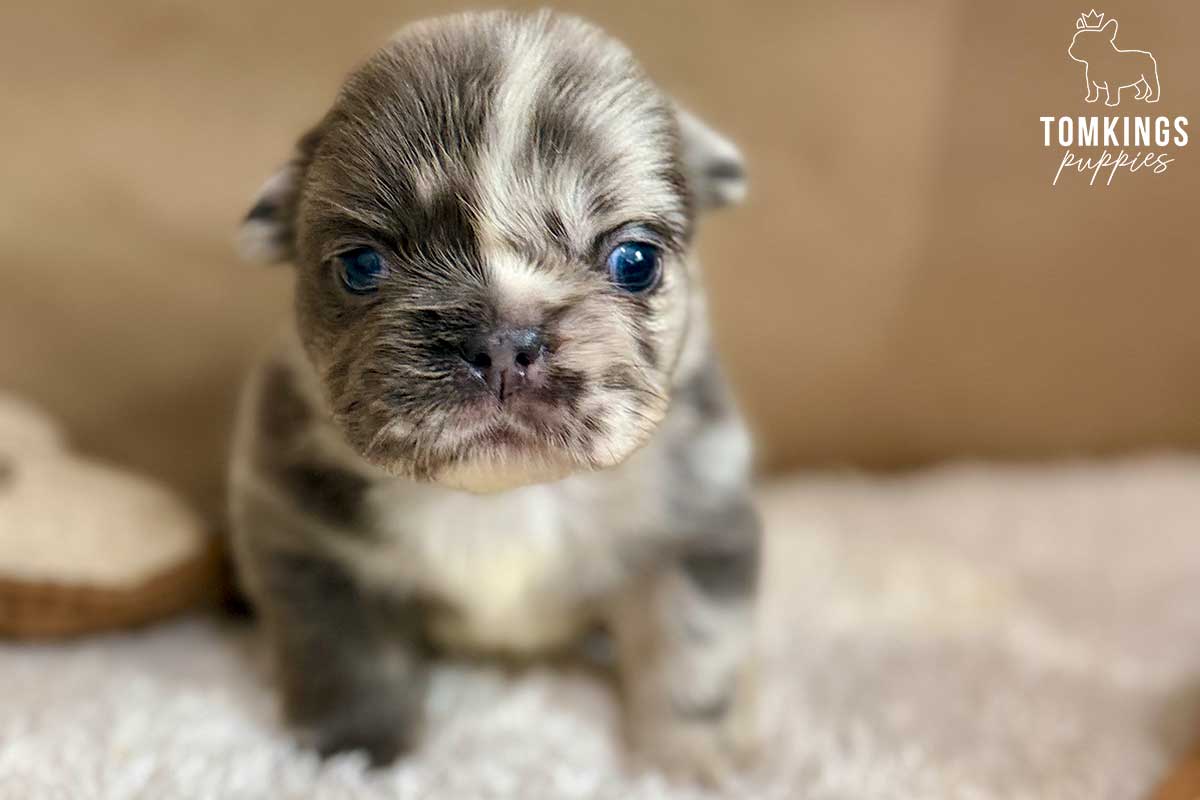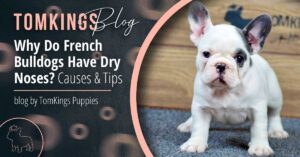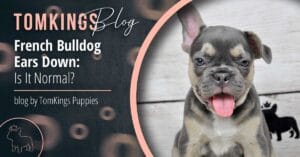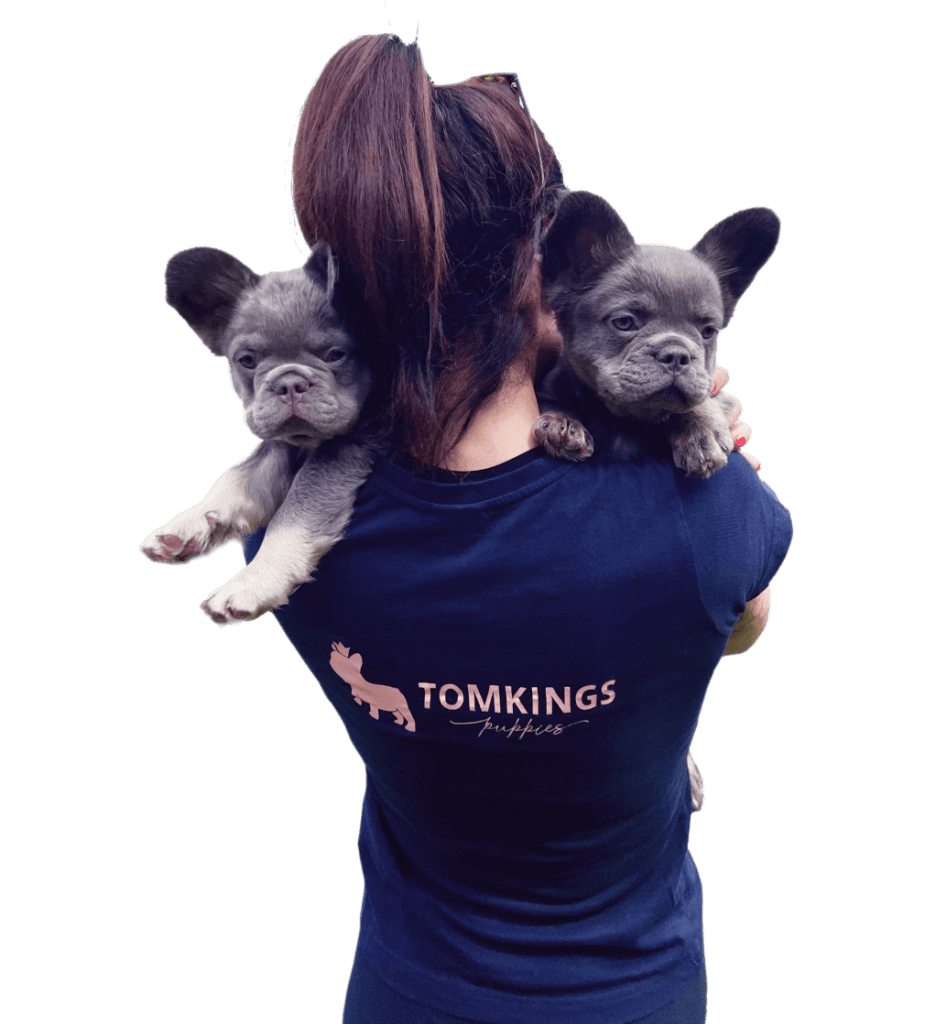Are you considering getting a dog but don’t know where to start? Choosing the right breed can be a daunting task, especially if you are living in a smaller home or apartment. In this article, we will provide you with some advice and tips on 35 dog breeds, divided into four categories: small house dog breeds, best medium breeds, best large house dog breeds, and hypoallergenic dogs. We’ll also give you five tips to help you choose the best dog breed for your housing situation, size, energy level, shedding, trainability, and price. With so many different breeds to choose from, there’s sure to be a perfect match for you and your family.
Table of Contents
Toggle5 Tips to Choose the Best Dog Breed for You
Adopting a dog is a significant commitment, and it’s essential to choose the right breed for your lifestyle and housing situation. Here are five tips to help you choose the best dog breed for you.
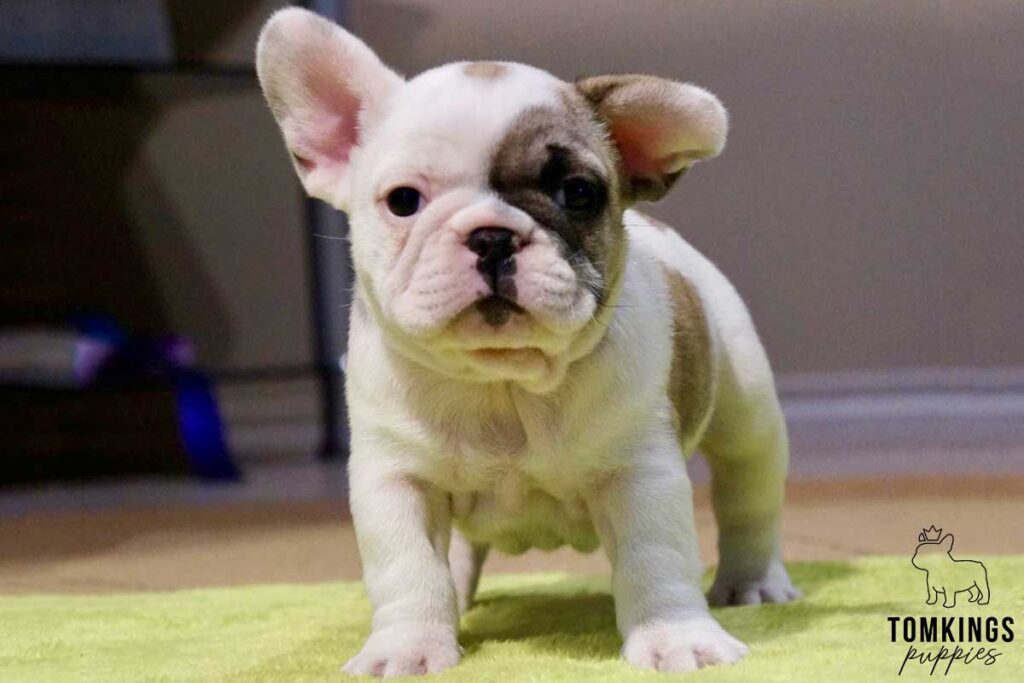

Consider Your Housing Situation
The first thing to consider when choosing a dog breed is your housing situation. If you live in a small apartment, you may want to consider a smaller dog breed that doesn’t require as much space to run around. If you have a larger home with a yard, you may want to consider a larger dog breed that can handle the extra space.
Think About Size
Size matters when it comes to choosing a dog breed. Do you want a dog that you can easily pick up and carry around with you, or do you want a dog that will grow to be a larger, more imposing presence? Keep in mind that larger dogs will require more food, space, and exercise.
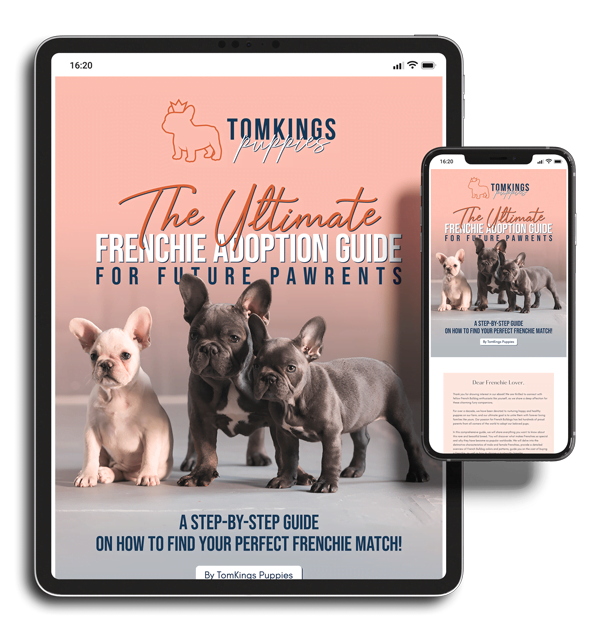

Ultimate Guide
to Adopting a Frenchie
Evaluate Energy Level
Some dog breeds are more active and need more exercise than others. If you are not an active person, you may want to consider a breed that doesn’t require as much exercise. On the other hand, if you enjoy spending time outdoors and want a furry companion to accompany you on adventures, an active breed may be a better fit.
Consider Shedding
If you or someone in your household is allergic to dogs, you may want to consider a hypoallergenic dog breed that doesn’t shed as much as other breeds. Otherwise, be prepared for lots of shedding and regular grooming. Keep in mind that dogs with longer hair or double coats will require more grooming than those with shorter hair.
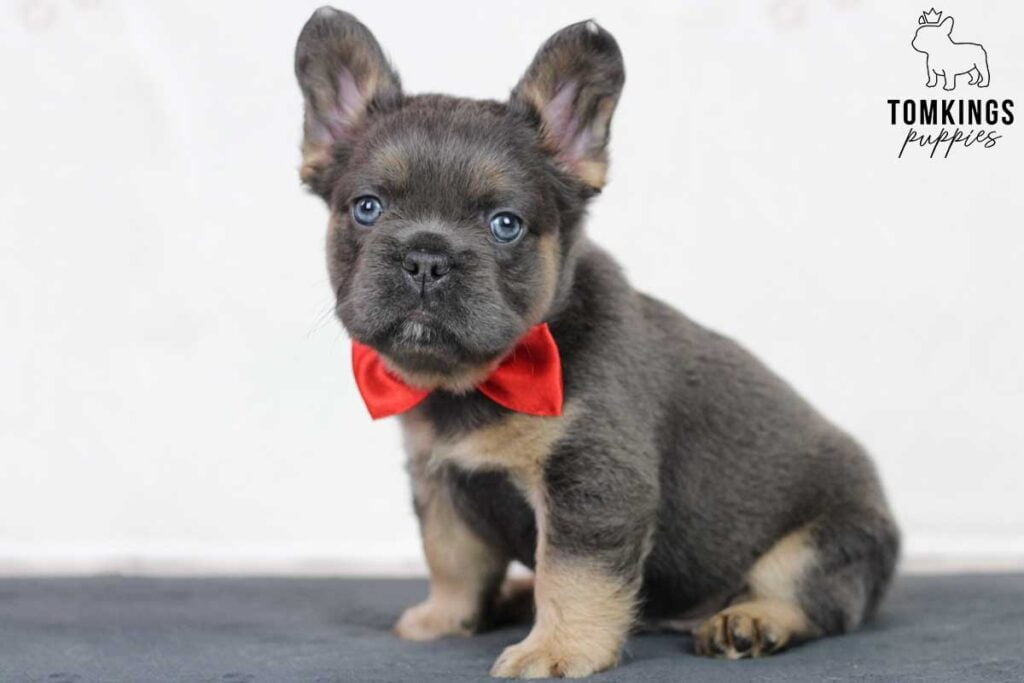

Think About Trainability
Some dog breeds are easier to train than others. If you are a first-time dog owner or want a dog that is easy to train, consider a breed that is known for its trainability. Breeds like Golden Retrievers and Labrador Retrievers are typically easy to train and eager to please.
Choosing the right dog breed is an important decision, but it can also be a fun and exciting one! Take the time to research different breeds and consider your lifestyle and needs. With a little bit of effort and patience, you’ll find the perfect furry friend to welcome into your home.
Small House Dog Breeds
Small house dog breeds are an excellent choice for people who live in smaller homes or apartments. These breeds are typically small in size and don’t require as much space or exercise as larger breeds, making them ideal for those who have limited living space. Despite their size, small house dog breeds can still provide the love, companionship, and loyalty that all dog owners crave.
One of the benefits of having a small house dog is that they are often low-maintenance. They require less food, and their smaller size makes them easier to groom and clean up after. Small house dogs can also be great companions for those who are less active, as they don’t require as much exercise as larger breeds. Many small dog breeds are also known for their affectionate personalities and love to be near their owners at all times.
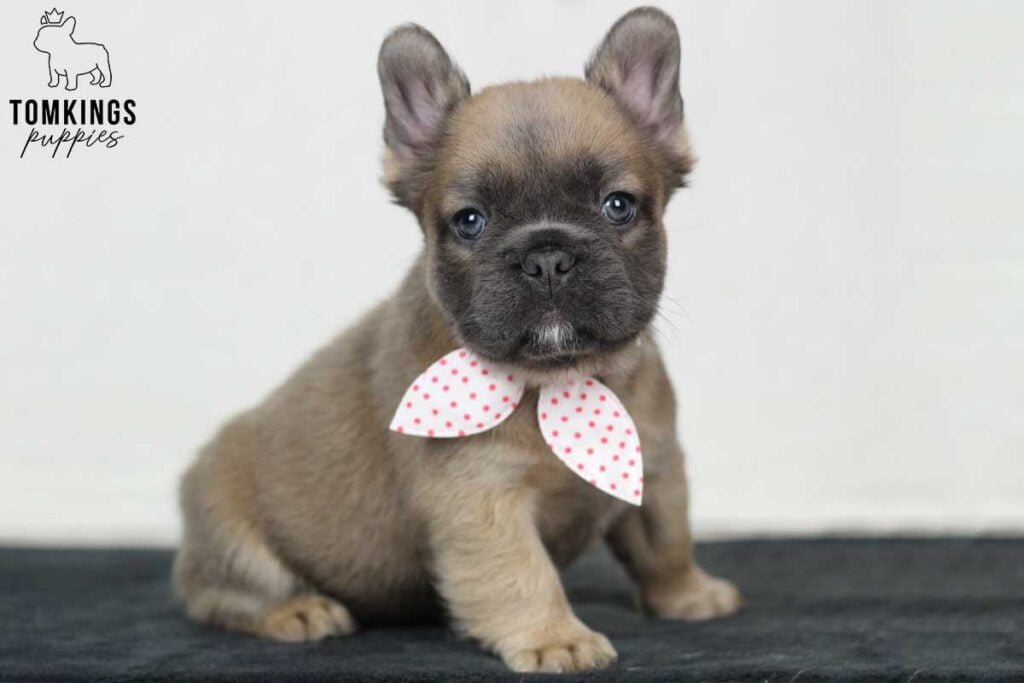

Some popular small house dog breeds include the Chihuahua, French Bulldog, Pomeranian, and Boston Terrier. Each of these breeds has its own unique personality and characteristics, but they all make excellent pets for those who live in smaller homes or apartments.
It’s important to note that small house dogs do require some level of training and socialization to ensure that they are well-behaved and happy in their new home. However, with patience and dedication, you can train your small house dog to be a well-behaved and loyal companion.
Overall, small house dog breeds are an excellent choice for those who want a furry friend but have limited living space. They are low-maintenance, affectionate, and can provide a lot of love and companionship despite their small size. And now let’s take a look at our favorite small house dog breeds!
1. French Bulldog
With their compact size and low-energy level, a French Bulldog is an excellent choice for small living spaces. They are also good with children and have playful personalities. Check out our articles about the average French Bulldog price and how to find reputable French Bulldog breeders.
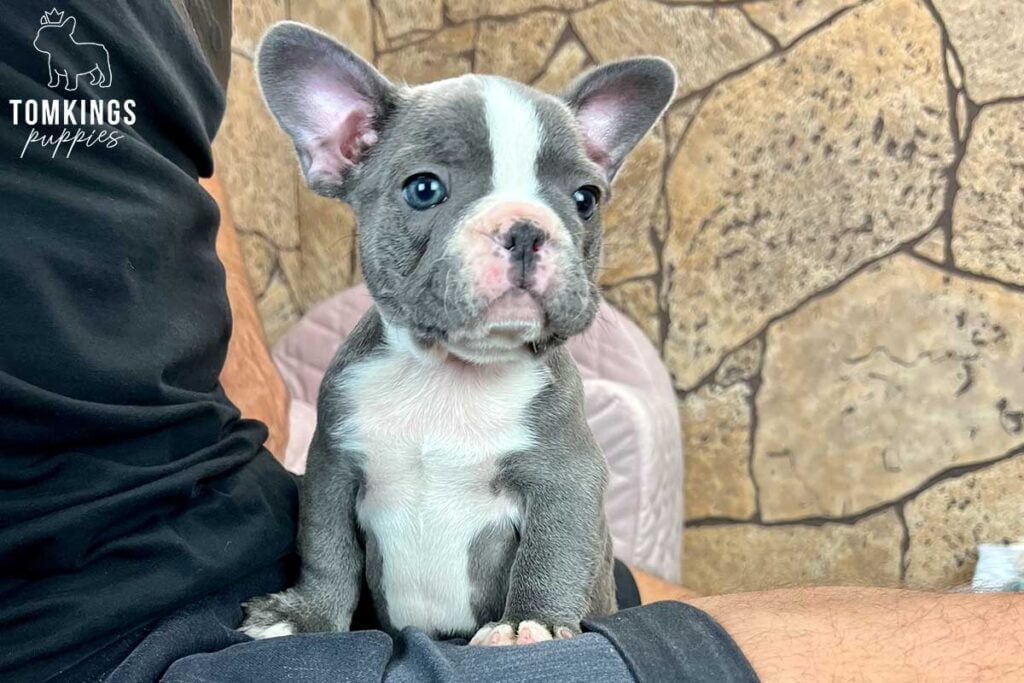

2. Chihuahua
These tiny dogs are ideal for apartment living and don’t require much exercise. However, they can be yappy and may not be the best fit for families with young children.
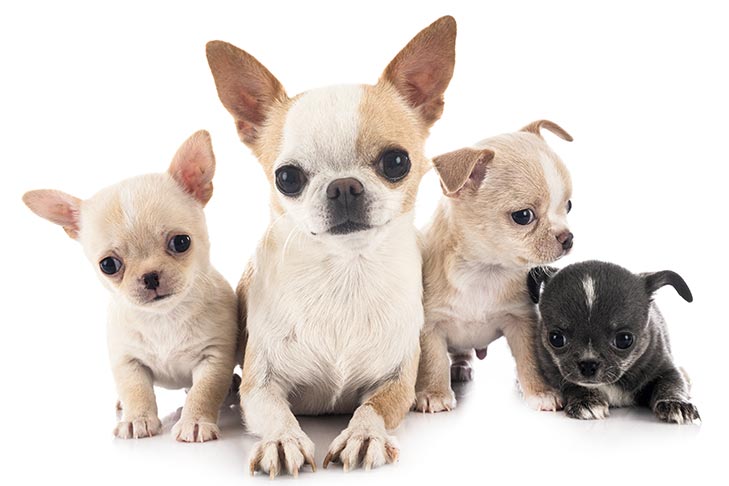

3. Pomeranian
These small dogs are known for their fluffy coat and friendly personality. They do require regular grooming and exercise, but their small size makes them perfect for apartment living.
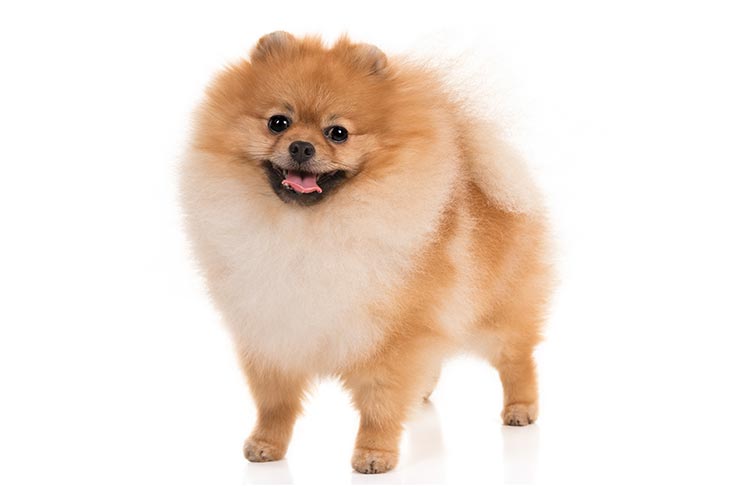

4. Boston Terrier
These small but sturdy dogs are great for families with children and make excellent apartment pets. They have a low energy level and are easy to train.
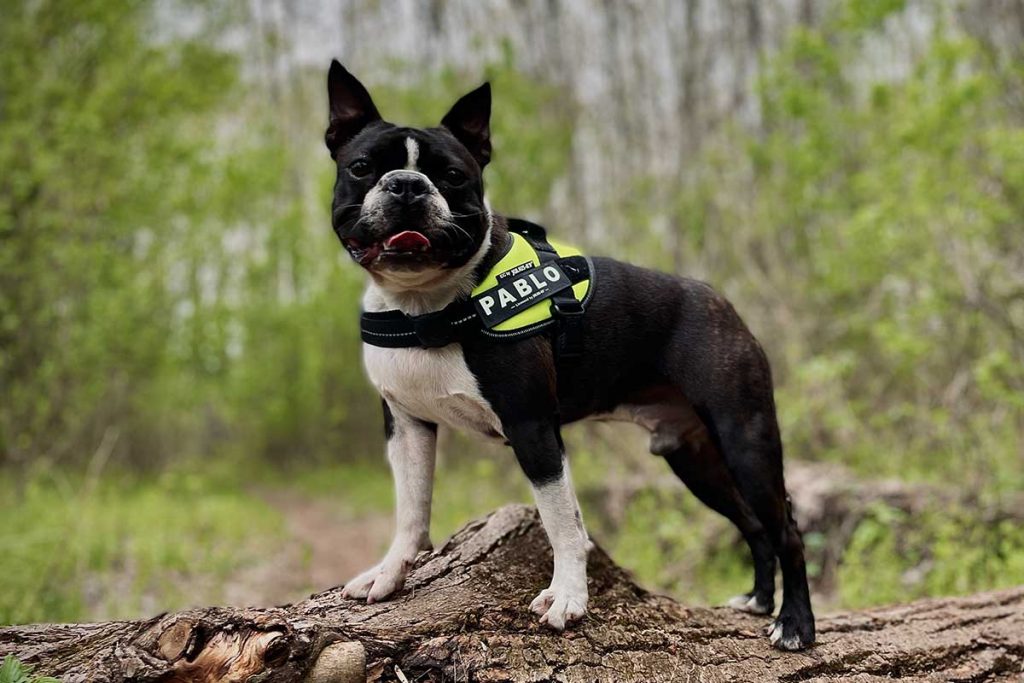

5. Shih Tzu
These small dogs are affectionate and playful, making them great companions for apartment living.
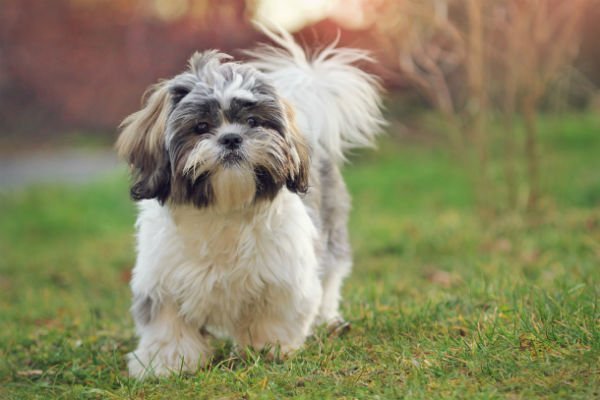

6. Cavalier King Charles Spaniel
These friendly dogs are good with children and have a low-energy level, making them well-suited for small living spaces.
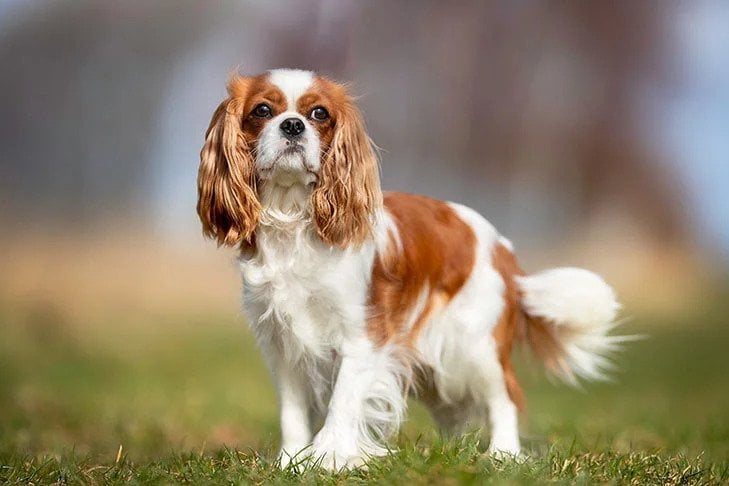

7. Dachshund
These small dogs are known for their unique long bodies and short legs. They are playful and make great apartment pets.
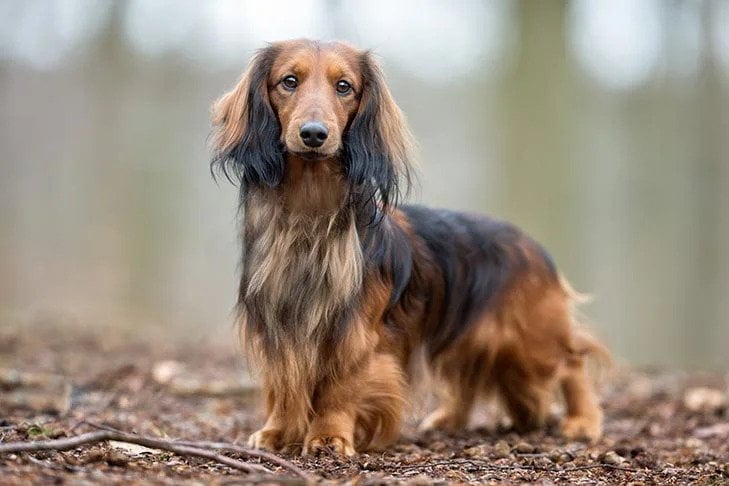

8. Jack Russell Terrier
Small but mighty, Jack Russell Terriers are energetic and intelligent dogs that make great companions for active families and experienced dog owners.
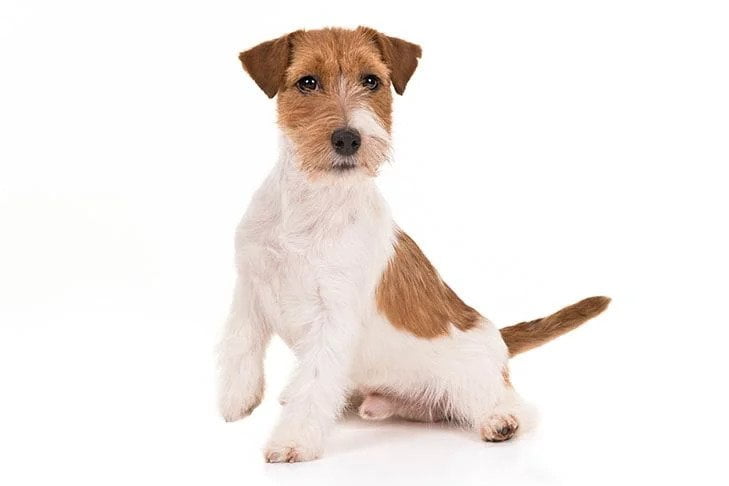

Best Medium Breeds
Best medium breeds are an excellent choice for those who want a dog that is not too small or too large. These breeds typically have a great balance between energy levels, exercise needs, and space requirements, making them an ideal choice for families with a bit more space to offer than small house owners.
One of the benefits of having a medium-breed dog is that they are often highly adaptable. They can thrive in both urban and suburban environments and are usually great with children and other pets. Medium-sized dogs also make excellent companions for those who enjoy outdoor activities, as they are often active and love to explore.
Some popular medium breeds include the Cocker Spaniel, Border Collie, Australian Shepherd, and Bulldog. Each of these breeds has its own unique personality and characteristics, but they all make excellent pets for those who are looking for a dog that is not too big or too small.


Subscribe to our weekly blog newsletter
It’s important to note that medium-breed dogs do require some level of exercise and mental stimulation to ensure that they are happy and healthy. However, with proper training and care, these dogs can be excellent family pets that provide love, loyalty, and companionship for many years.
Overall, medium-breed dogs are an excellent choice for those who want a dog that is not too small or too large. They are highly adaptable, great with children, and can provide a lot of love and companionship for those who have a bit more space to offer. And now let’s take a look at our favorite medium-sized dog breeds!
9. Basset Hound
These medium-sized dogs are affectionate and gentle, making them surprisingly great companions for apartment living.
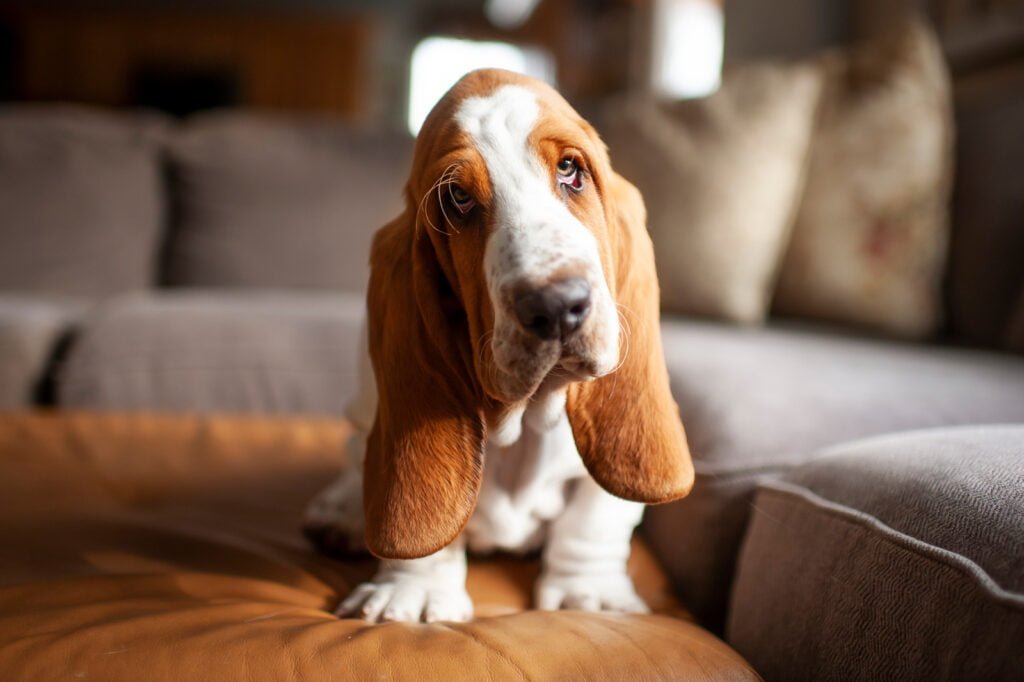

10. Cocker Spaniel
These friendly and energetic dogs are great for families with children and are suitable for both small apartments and larger homes with yards. They do require regular grooming and exercise.
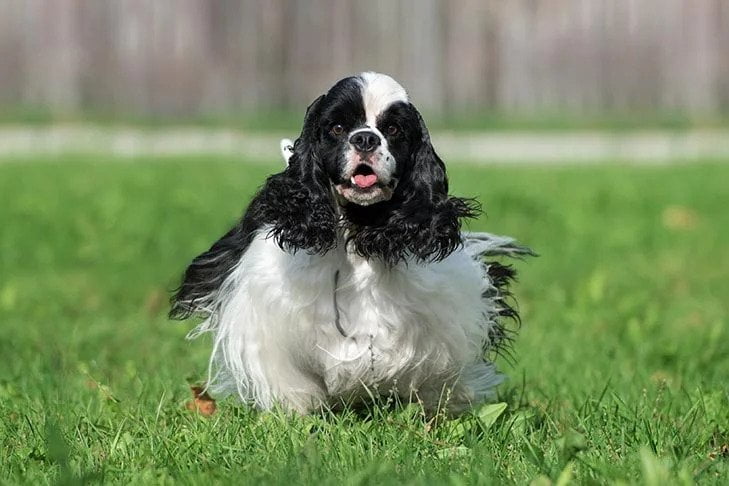

11. Border Collie
With their high energy level and intelligence, Border Collies are ideal for families who enjoy an active lifestyle. They require a lot of exercises and mental stimulation and are best suited for larger homes with yards.
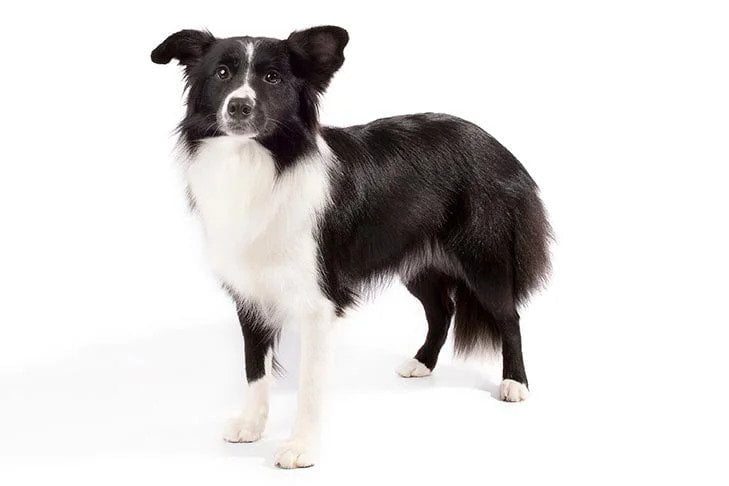

12. Australian Shepherd
These intelligent and energetic dogs are great for families who enjoy an active lifestyle. They require lots of exercises and mental stimulation and are best suited for larger homes with yards.
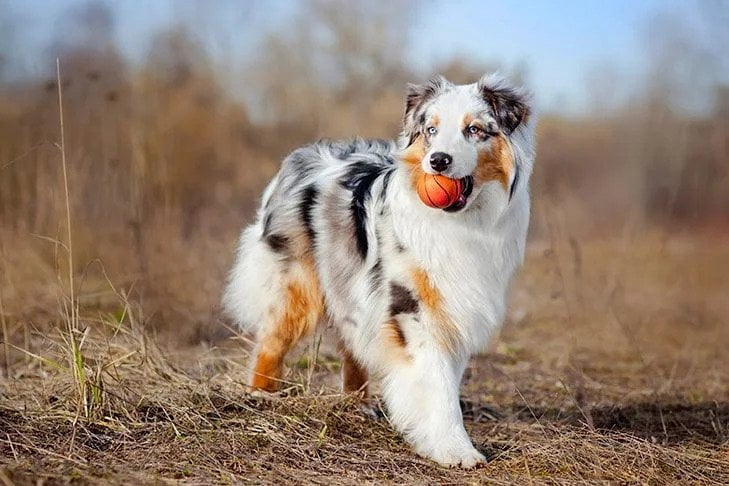

13. Australian Cattle Dog
A hardworking breed that excels at herding and other tasks, Australian Cattle Dogs are intelligent and independent dogs that require an active lifestyle.
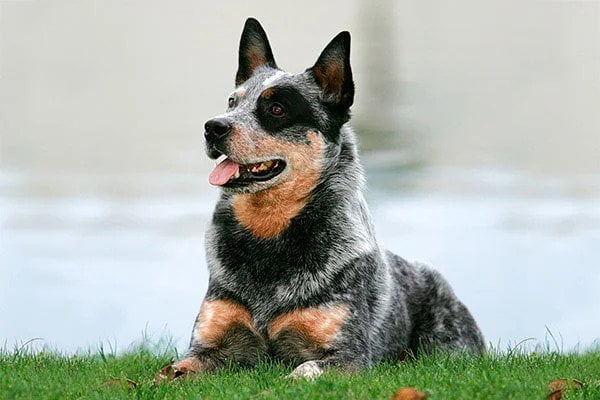

14. Bulldog
These medium-sized dogs have a low-energy level and are great for families with children. They do require regular exercise and are best suited for homes with a yard.
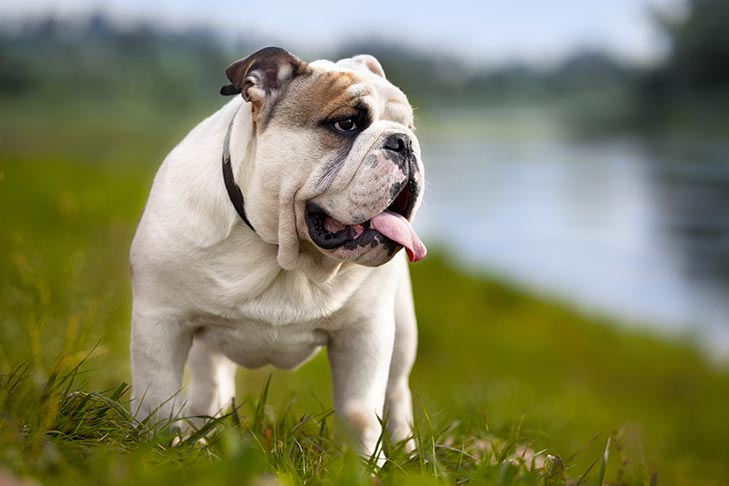

15. Boxer
These high-energy dogs are great with children and require lots of exercise. They are well-suited for larger homes with yards.
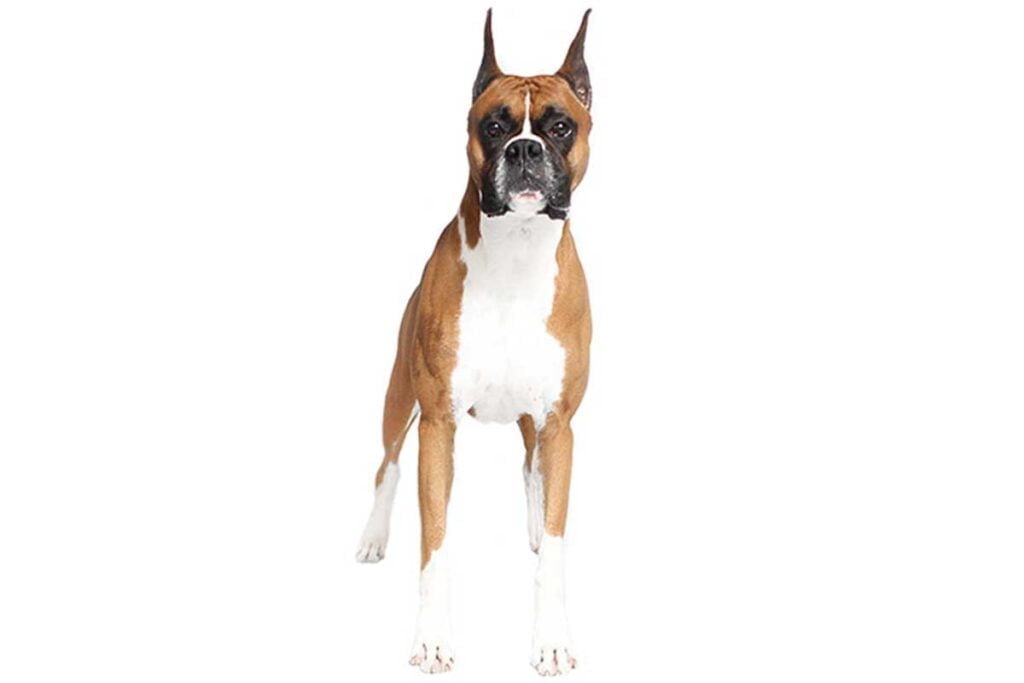

16. American Staffordshire Terrier
These loyal and affectionate dogs are great with children and make excellent family pets. They require regular exercise and mental stimulation.
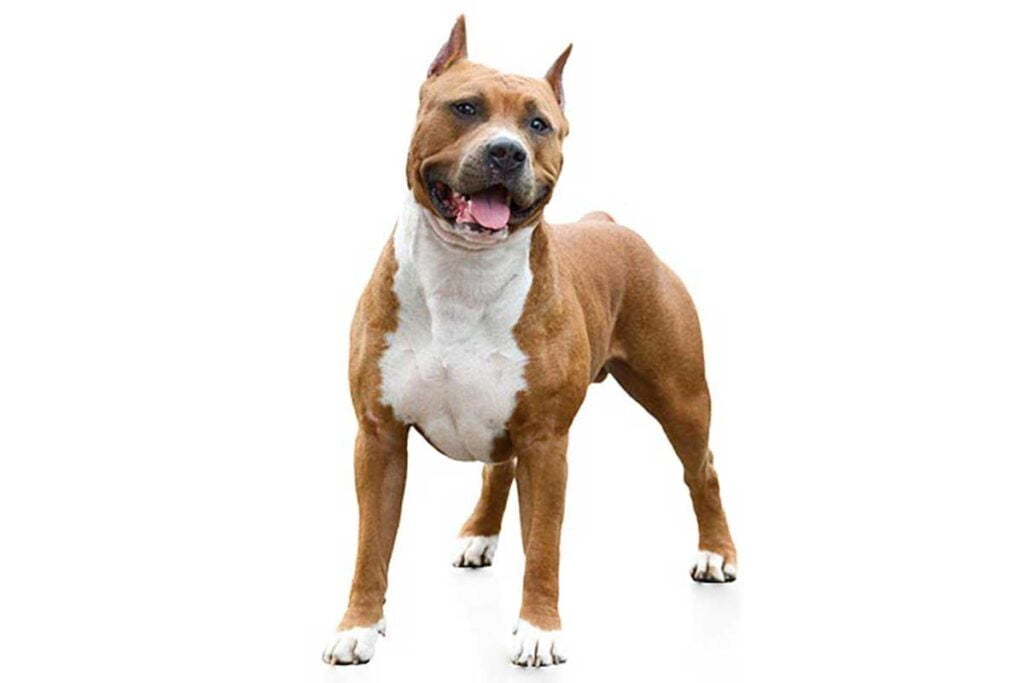

17. English Springer Spaniel
These friendly and energetic dogs are great for families with children and are well-suited for both small apartments and larger homes with yards.
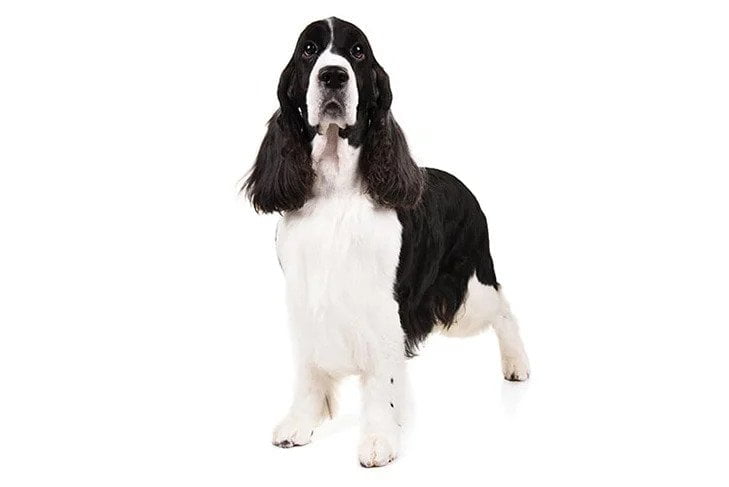

18. Whippet
Sleek and graceful, Whippets are gentle and affectionate dogs that love to cuddle and play.
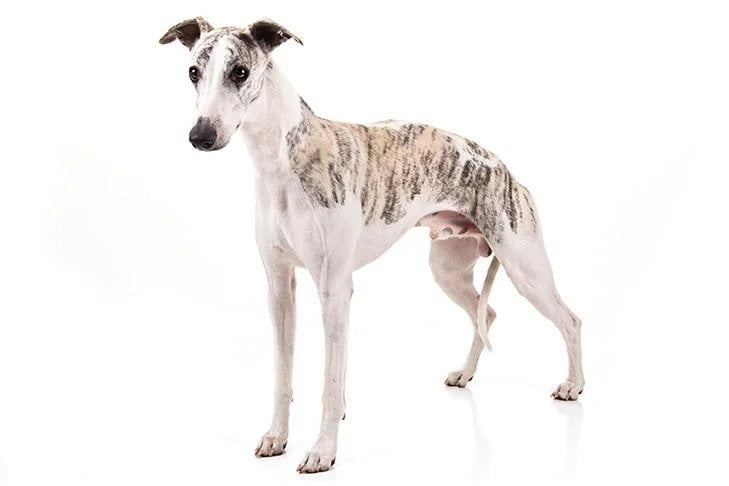

Best Large House Dog Breeds
Best large house dog breeds are an excellent choice for those who have plenty of space to offer and want a dog that can match their energy level. These breeds are typically larger in size and require more exercise and space than smaller breeds, making them perfect for families with larger homes or yards.
One of the benefits of having a large house dog is that it can provide a great sense of security and protection for your family and property. Many large breeds are also great with children and make excellent family pets. Despite their size, large house dogs can still provide the love, loyalty, and companionship that all dog owners crave.
Some popular large house dog breeds include the Golden Retriever, Labrador Retriever, Great Dane, and Bernese Mountain Dog. Each of these breeds has its own unique personality and characteristics, but they all make excellent pets for those who have plenty of space to offer.
It’s important to note that large house dogs do require a lot of exercises and mental stimulation to ensure that they are happy and healthy. They also require more food and space than smaller breeds, so it’s essential to ensure that you can provide the necessary care and attention before adopting a large breed dog.
Overall, large house dog breeds are an excellent choice for those who have plenty of space and want a dog that can match their energy level. They can provide a great sense of security, love, loyalty, and companionship for many years if given the proper care and attention. Let’s take a look at our favorite large dog breeds!
19. Golden Retriever
With their friendly and outgoing personality, Golden Retrievers are excellent family pets. They are best suited for homes with a yard and require regular exercise.
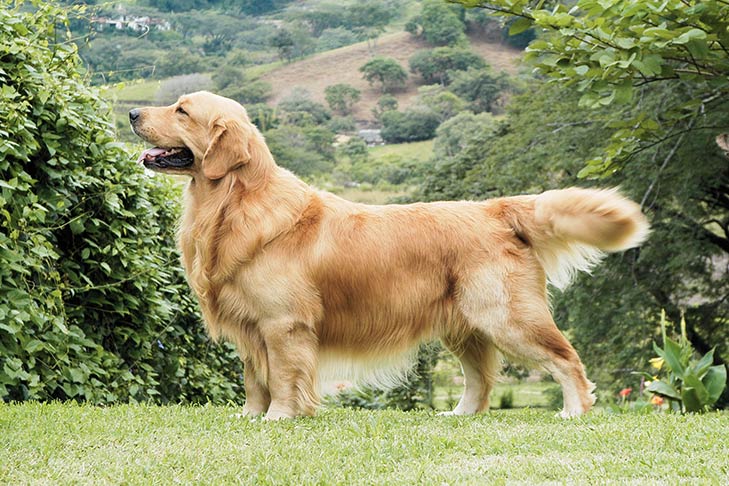

20. Labrador Retriever
These intelligent and friendly dogs are great with children and make excellent family pets. They require regular exercise and are best suited for homes with a yard.
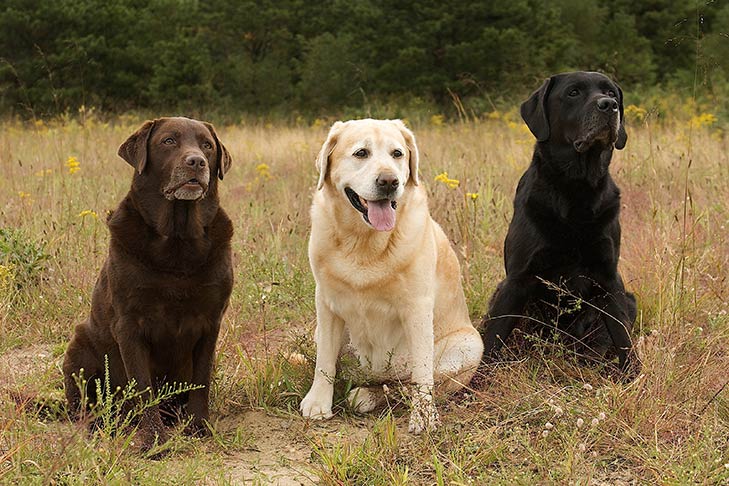

21. Great Dane
These gentle giants are surprisingly well-suited to apartment living despite their size. They have a low energy level and are known for their calm and friendly temperament.
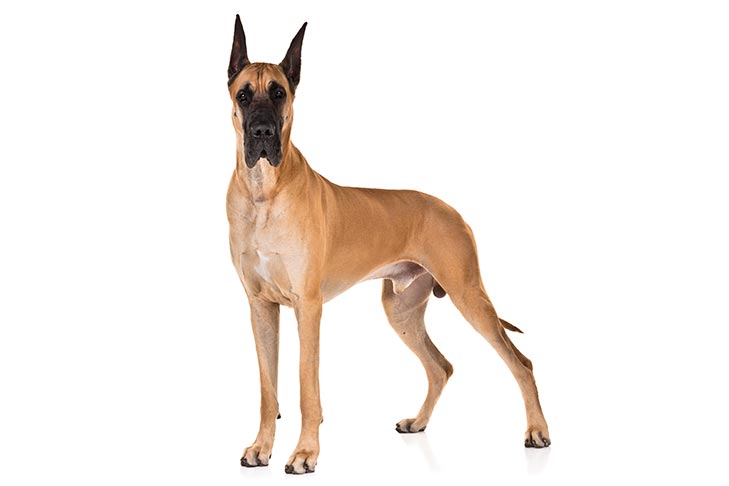

22. Bernese Mountain Dog
These gentle giants are great with children and make excellent family pets. They require regular exercise and are best suited for homes with a yard.
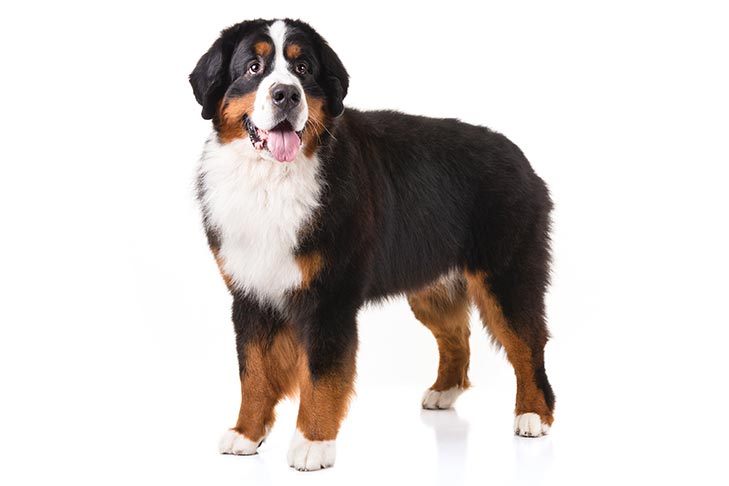

23. Newfoundland
These gentle giants are known for their calm and patient temperament. They require regular exercise and are best suited for homes with a yard.
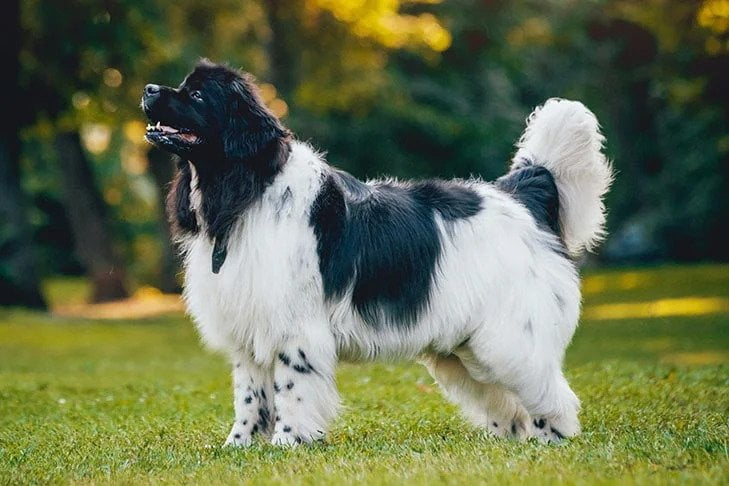

24. Saint Bernard
These gentle giants are great with children and make excellent family pets. They require regular exercise and are best suited for homes with a yard.
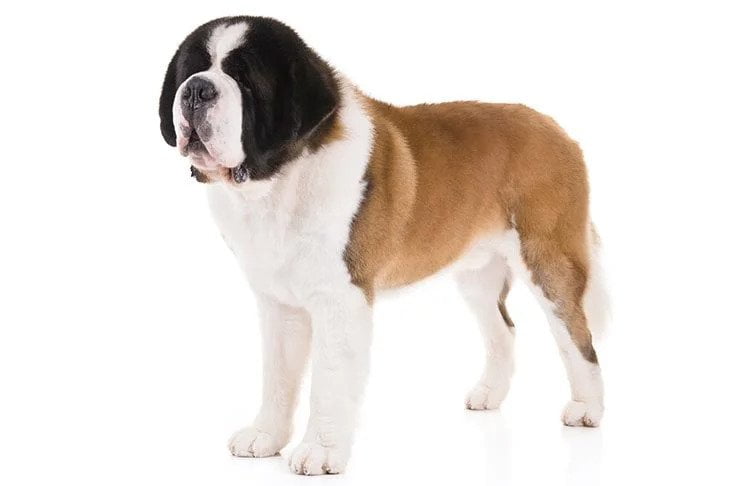

25. Irish Wolfhound
These gentle giants are surprisingly well-suited to apartment living despite their size. They have a low energy level and are known for their calm and friendly temperament.
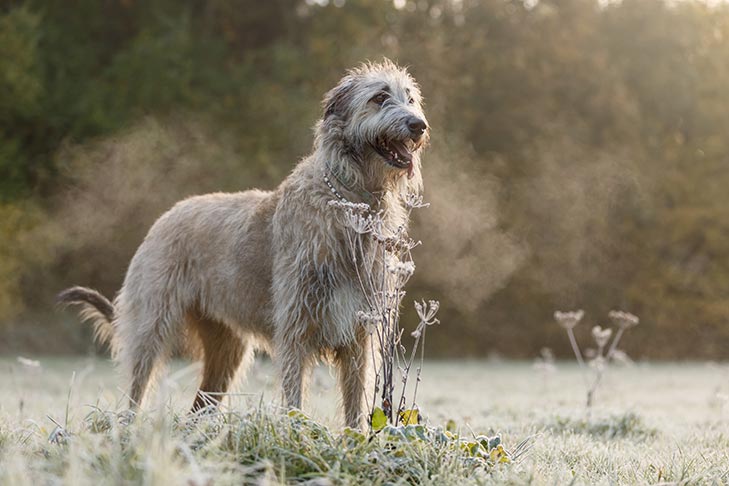

26. Siberian Husky
Known for their striking looks and friendly personalities, Siberian Huskies are loyal and affectionate dogs that thrive in colder climates.
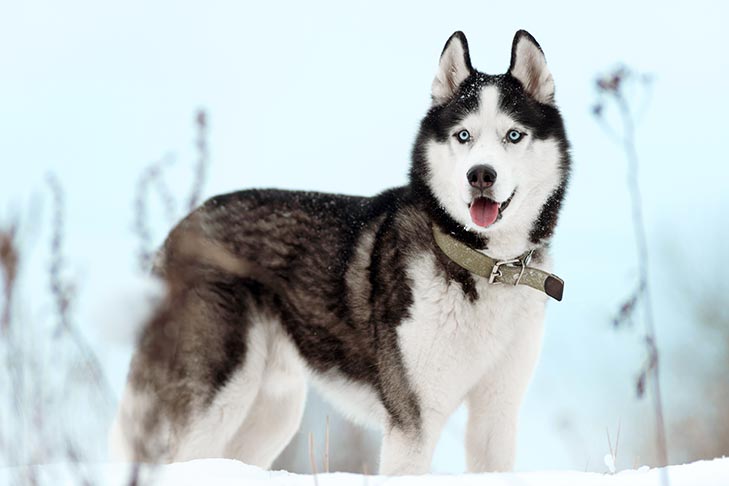

27. Dalmatian
Famous for their distinctive spots and energetic nature, Dalmatians are active and playful dogs that make great companions for families with older children.
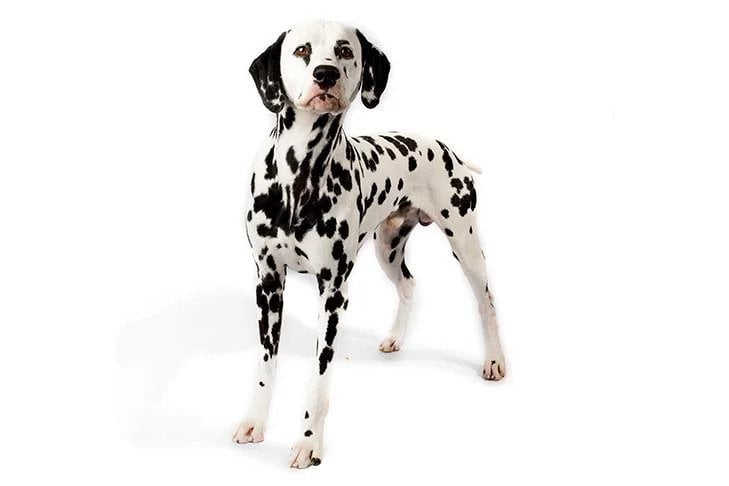

28. Akita
With their dignified and courageous nature, Akitas are loyal and protective dogs that make great companions for experienced dog owners.
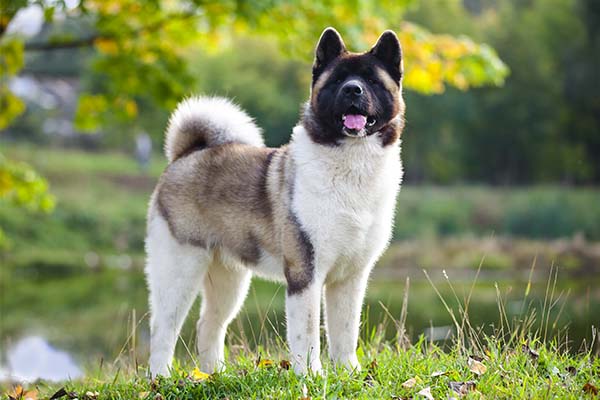

Are You Looking for a Hypoallergenic Dog?
If you or someone in your household has allergies, a hypoallergenic dog may be the perfect furry friend for you. These breeds have hair instead of fur, which means they produce fewer allergens and are less likely to cause an allergic reaction.
One of the benefits of having a hypoallergenic dog is that they shed less than other breeds, which means less cleaning and less time spent on grooming. Many hypoallergenic breeds also have friendly and affectionate personalities, making them great companions for families with children or for those who live alone.
Some popular hypoallergenic dog breeds include the Poodle, Bichon Frise, Shih Tzu, and Yorkshire Terrier. Each of these breeds has its own unique personality and characteristics, but they all share the common trait of being hypoallergenic.
It’s important to note that hypoallergenic dogs do require regular grooming to keep their coats healthy and free from tangles. They also require the same level of care and attention as any other dog breed, including regular exercise and mental stimulation.
Overall, hypoallergenic dogs are an excellent choice for those who have allergies or are looking for a low-shedding dog breed. They are affectionate, friendly, and can provide a lot of love and companionship for many years if given the proper care and attention.
Some popular hypoallergenic dog breeds include:
29. Poodle
These intelligent and friendly dogs are known for their curly, non-shedding coat. They come in a variety of sizes, including toy, miniature, and standard.
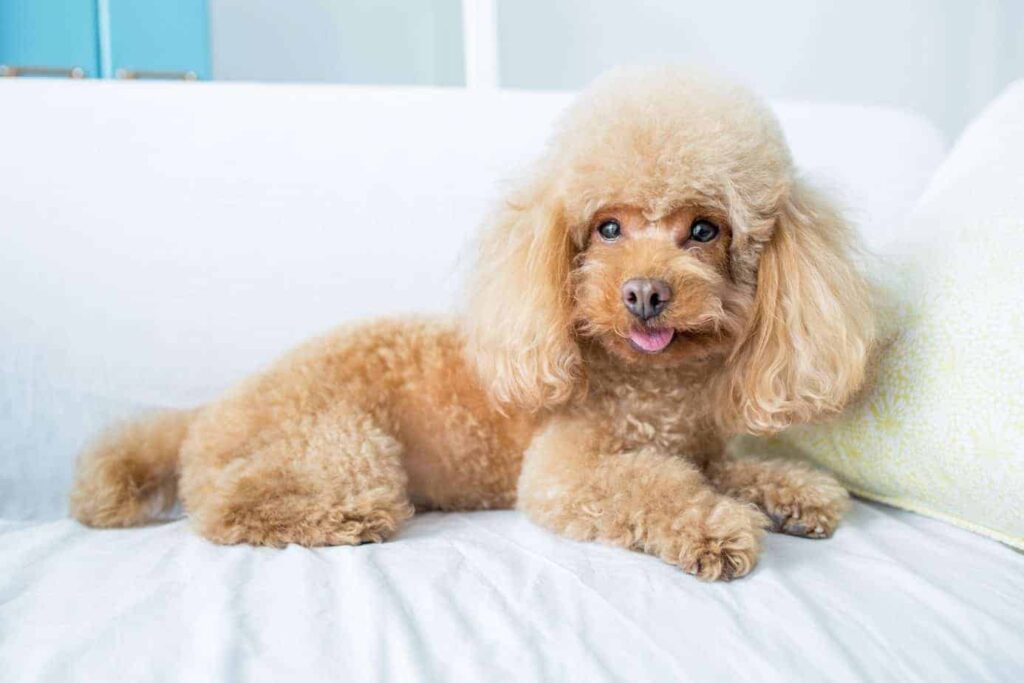

23. Bichon Frise
These small, fluffy dogs are playful and friendly. They have a non-shedding coat that requires regular grooming.
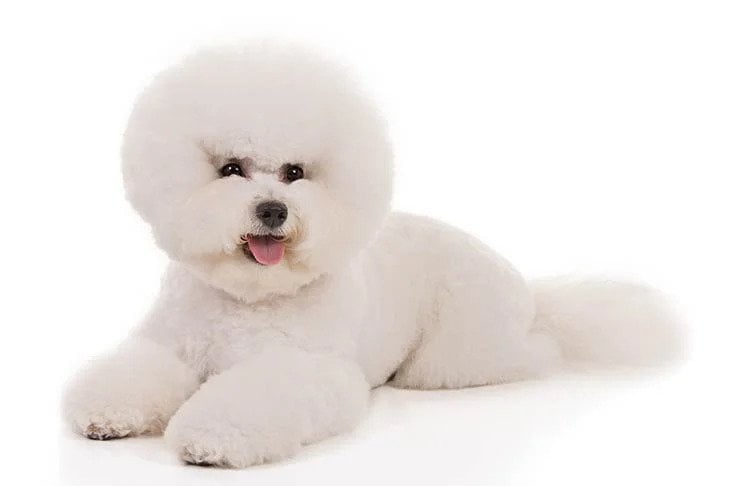

30. Shih Tzu
These small dogs are known for their long, silky coat, which is hypoallergenic and requires regular grooming. They are friendly and affectionate with their owners.
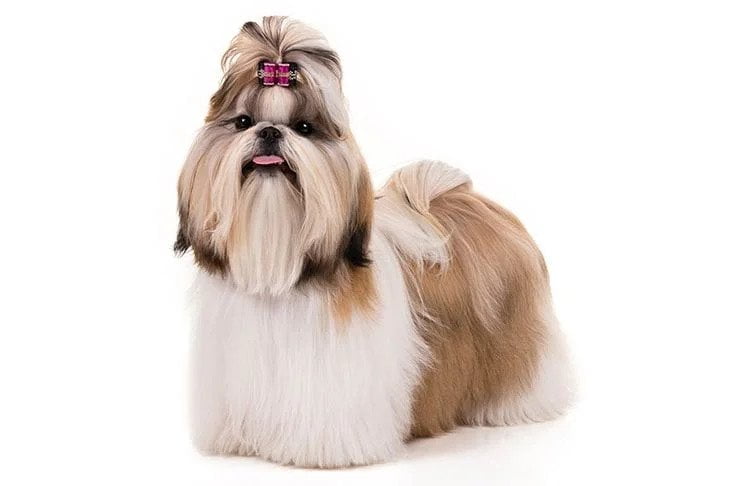

31. Yorkshire Terrier
These small dogs have a hypoallergenic coat that requires regular grooming. They are lively and affectionate and make great companions for apartment living.
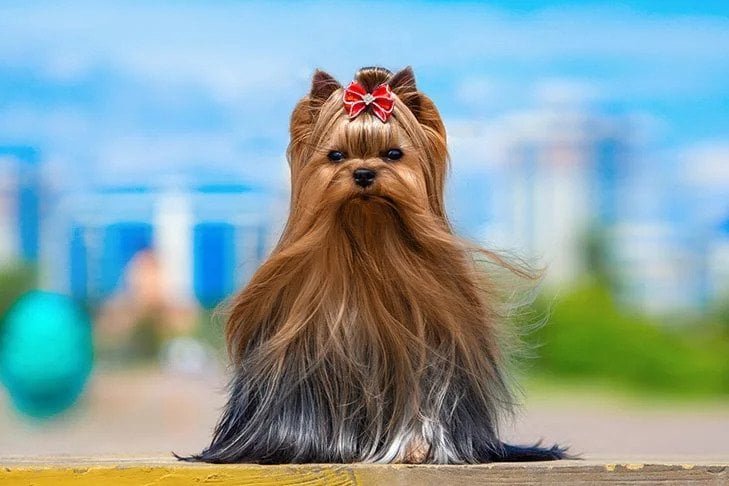

32. Portuguese Water Dog
These intelligent and friendly dogs have a hypoallergenic coat that requires regular grooming. They are great for families with children who love to play in the water.
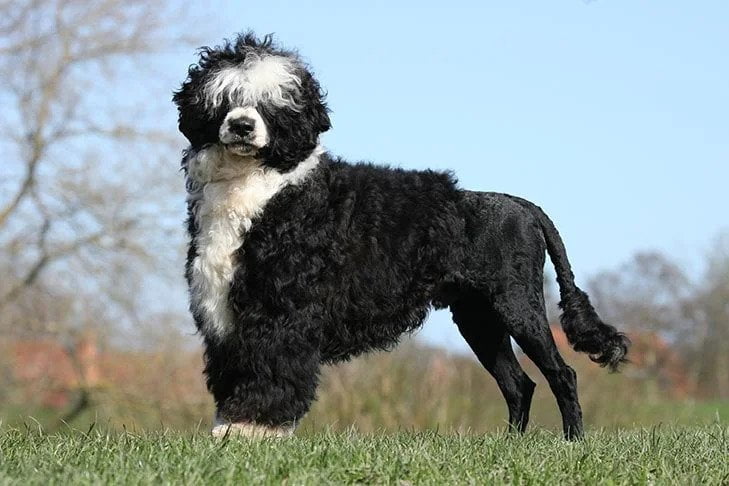

33. Maltese
These small dogs are known for their long, silky coat, which is hypoallergenic and requires regular grooming. They are affectionate and love to cuddle with their owners.
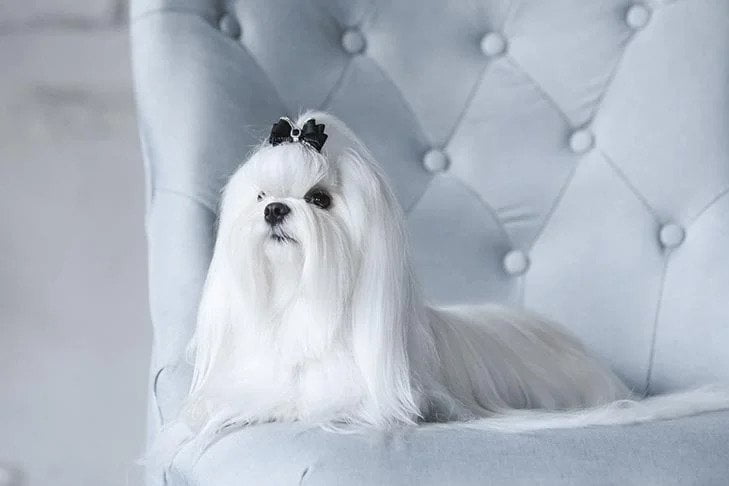

34. Chinese Crested
These small dogs come in both hairless and powderpuff varieties and are known for their affectionate and playful personality. They make great apartment pets.
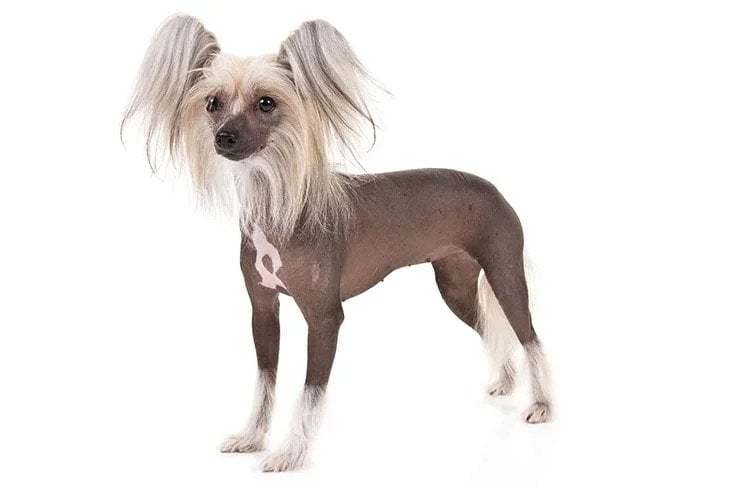

35. American Eskimo Dog
With their fluffy white coats and cheerful personalities, American Eskimo Dogs are playful and loyal companions that are well-suited for apartment living.
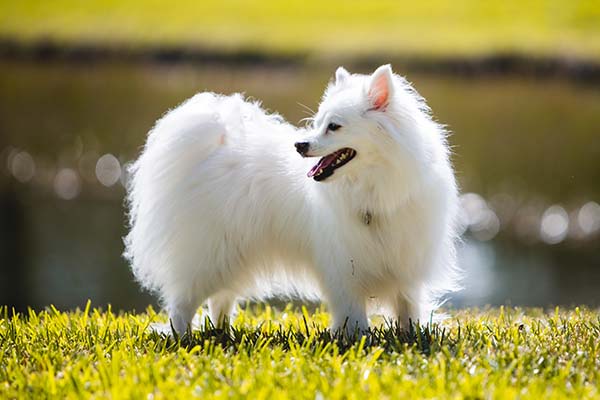

Do Further Research Before Adopting a Dog
Before adopting a dog, it’s essential to do your research to ensure that you’re making the right decision for both you and your potential new furry friend.
Each breed has its own unique temperament, and it’s important to find one that matches your personality and lifestyle. For example, some breeds are known to be more active and require lots of exercises, while others are more laid-back and prefer to cuddle on the couch.
Some breeds are more prone to certain health issues than others. It’s important to research any potential health problems that a breed may have and be prepared to provide the necessary care.
Consider the level of training required for the breed you’re considering. Some breeds are easier to train than others, but all dogs require some level of training to ensure they are well-behaved and socialized.
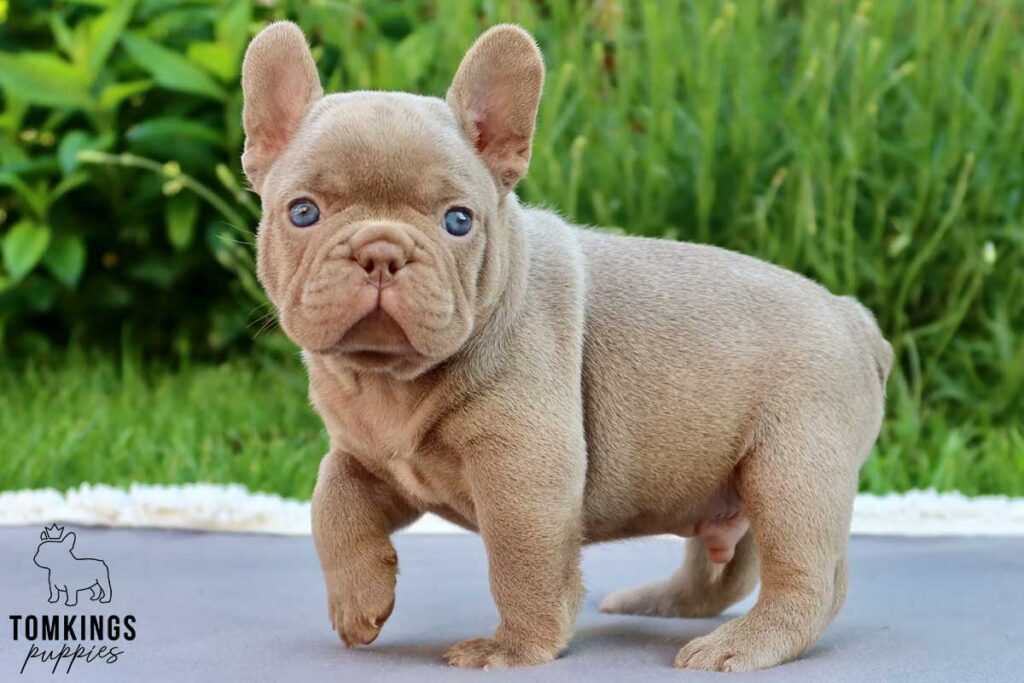

The cost of owning a dog goes beyond the initial adoption fee. You’ll also need to factor in the cost of food, grooming, veterinary care, and other supplies. Make sure you can afford to provide the necessary care for your new furry friend.
You can also consider adopting from a rescue organization or animal shelter rather than a breeder. There are many dogs in need of homes, and adoption is a great way to save a life. However, if you do decide to go with a breeder, make sure to research them thoroughly and ensure that they are reputable.
Remember, adopting a dog is a significant commitment, and it’s important to take the time to find the right fit for you and your lifestyle. Research different breeds, ask questions, and be prepared to provide the love and care your new furry friend deserves. With a little bit of effort and patience, you’ll find the perfect furry friend to welcome into your home.
Frequently Asked Questions
The best dogs for a small house are breeds that don’t require a lot of space or exercise, such as Chihuahuas, French Bulldogs, Pomeranians, and Boston Terriers.
Some dog breeds that make perfect watchdogs include German Shepherds, Doberman Pinschers, Rottweilers, Boxers, and Bullmastiffs.
Some of the friendliest dog breeds for families include French Bulldogs, Golden Retrievers, Labrador Retrievers, Beagles, Boxers, and Poodles.
Related Blogposts:
- 7+1 Reasons NOT to Get a Frenchie
- French Bulldog Breed Standard: 7 Traits That Make Frenchies Beautiful
- Chihuahua vs French Bulldog: Can We Help You Choose?
- Why Two French Bulldogs Are Better Than One: 7 Benefits You’ll Love
- The 5 Biggest Mistakes New Frenchie Parents Should Avoid
- 9 Dogs That Look Like French Bulldogs

